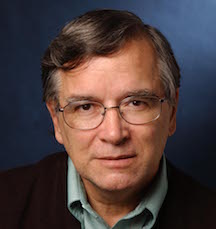 We are delighted to run this guest post by Dr. Michael R. Collings.
We are delighted to run this guest post by Dr. Michael R. Collings.
A short while ago, I received an invitation to write a few words about two recently completed projects that related directly to LDS-oriented language and letters. The more I thought about what to say, the more I realized that traditional approaches—analysis of contents, close explication of select samples, and so on—wouldn’t really say what I wanted to say about the origins of the projects and their effects on me as a Latter-day Saint author, poet, and literary critic. Instead, it seemed that a more circuitous route would better fit, and that taking such a route would allow me to touch upon a third event that is, in its own way, as meaningful
I was born in the fall of 1947, in a small town in rural Idaho. At age eight, I was baptized a member of the Church of Jesus Christ of Latter-day Saints, in a branch of the mission that included the then-rural Billings, Montana. In the early 1960s, I attended high school in Carmichael, California, a quiet suburb of Sacramento surrounded by orchards and fields. There I first became fascinated with poems such as Beowulf and John Milton’s grand epic, Paradise Lost.
In the late 1960s, I attended college, graduating from Bakersfield Community College with an A.A. and from Whittier College with a B.A. in English and history and a firm determination to teach. Between 1969 and 1971, I served in the North German Mission, spending over fifteen months as the editor of the Mission’s weekly and monthly publications; I also first discovered the difference between poetry as artifact to be studied and admired and poetry as creative expression. The results—recorded in my mission journal—were some forty poems, including half a dozen long poems of 100-250 lines, most on Book of Mormon or missionary themes.
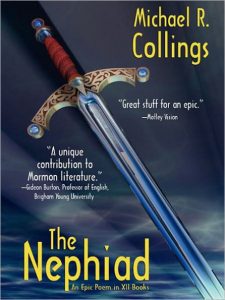 Returning home, I enrolled in the graduate program at the University of California, Riverside, to pursue M.A. and Ph.D. degrees in English literature. While under the mentorship of a world-renowned Milton scholar, I worked extensively with ancient, Renaissance, and modern epic…and at the same time completed The Nephite, a 2,000-line blank-verse drama; the first version of The Nephiad as a 5,800-line Miltonic epic in twelve books; The Pinnacle of Stone, a 1,700-line modern epic on the conquest of Mexico; and a dozen or more 100-1,000-line poems on various topics. In 1974, my first collection of poetry, A Season of Calm Weather, appeared, an amalgam of religious and historical pieces, many of them several pages long.
Returning home, I enrolled in the graduate program at the University of California, Riverside, to pursue M.A. and Ph.D. degrees in English literature. While under the mentorship of a world-renowned Milton scholar, I worked extensively with ancient, Renaissance, and modern epic…and at the same time completed The Nephite, a 2,000-line blank-verse drama; the first version of The Nephiad as a 5,800-line Miltonic epic in twelve books; The Pinnacle of Stone, a 1,700-line modern epic on the conquest of Mexico; and a dozen or more 100-1,000-line poems on various topics. In 1974, my first collection of poetry, A Season of Calm Weather, appeared, an amalgam of religious and historical pieces, many of them several pages long.
Following my graduation in 1977, I taught as an adjunct at San Bernardino City College and the University of California, Los Angeles, before being hired in the Communication Division of Seaver College, Pepperdine University, in Malibu. Beginning in the Freshman Composition program, I gradually moved into literature and then Creative Writing, where I served as director for nearly twenty years. Seaver was my home until deafness prompted my retirement as Emeritus Professor in 2006, at which point I returned to my home state, Idaho.
All of which leads to the question: Why am I bothering to recite this?
The simple answer is that in the fall of 2022, three event occurred which tied together many strands of my life and career, present from the beginning and increasing in importance through the years.
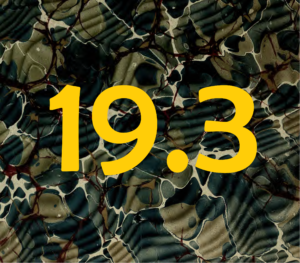 On September 13, 2022, the Association for Mormon Letters’ online literary journal Irreantum published a special issue on “Long Poetry”. Earlier that year, the journal’s editor had contacted me about serving as Guest Editor. After a good deal of thought, and with some trepidation, I accepted his kind invitation. As the submissions arrived, I realized that this was more than just a matter of selecting poems for publication; the variety of themes and treatments represented provided an opportunity to define and refine my expectations for long poetry in general and for L.D.S.-oriented long poetry in particular.
On September 13, 2022, the Association for Mormon Letters’ online literary journal Irreantum published a special issue on “Long Poetry”. Earlier that year, the journal’s editor had contacted me about serving as Guest Editor. After a good deal of thought, and with some trepidation, I accepted his kind invitation. As the submissions arrived, I realized that this was more than just a matter of selecting poems for publication; the variety of themes and treatments represented provided an opportunity to define and refine my expectations for long poetry in general and for L.D.S.-oriented long poetry in particular.
Reading the submissions took me back to my experiences with similar source materials and to decisions made in adapting religious/scriptural ideas into lines accessible to and acceptable to modern readers. Every poet in the issue demonstrated unique approaches to the peculiar challenges of long poetry, using a wide variety of ways in which to connect to audiences, to create drama and interest, and to rejuvenate what seems inherently old-fashioned or outmoded forms Working with such outstanding examples of poetry as art, I began to see the issue as a milestone of sorts for better understanding thousands of lines of my own poetry that have emerged over the years.
A week later, a second milestone appeared as volume six in Hemelein’s “Legacy of the Corridor” series, omnibus texts compiling new and old materials from authors associated with the “Corridor” (including Idaho, Utah, bits of Wyoming and Nevada, Arizona and New Mexico, and northern Mexico) and, more or less loosely, with L.D.S. history, culture, and society.
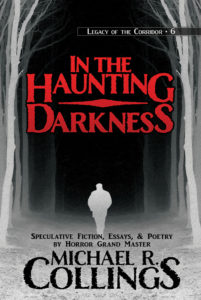 In the Haunting Darkness (Amazon link) presents essays, short stories, and poems exploring perspectives on persistent themes in my writing over half a century. They range from defining techniques of effective writing and suggesting their applications to contemporary literature, reflecting my experiences in teaching composition and creative writing, to assessing elements of literary epic in science fiction, fantasy, and horror. Several discuss authors that have influenced me and my writing, both professionally and personally. The stories touch upon my decades-long struggle with deafness and crippling tinnitus, as well as creating visions of other-Wheres and other-Whens for readers to inhabit. The poems span much of my writing career, from an early interest in free verse to a long poem-story in the form of a failed epic.
In the Haunting Darkness (Amazon link) presents essays, short stories, and poems exploring perspectives on persistent themes in my writing over half a century. They range from defining techniques of effective writing and suggesting their applications to contemporary literature, reflecting my experiences in teaching composition and creative writing, to assessing elements of literary epic in science fiction, fantasy, and horror. Several discuss authors that have influenced me and my writing, both professionally and personally. The stories touch upon my decades-long struggle with deafness and crippling tinnitus, as well as creating visions of other-Wheres and other-Whens for readers to inhabit. The poems span much of my writing career, from an early interest in free verse to a long poem-story in the form of a failed epic.
Since the selections in In the Haunting Darkness emphasize speculative fictions, there is little overly L.D.S. in their content. All are imbued, however, with the essential “Mormonism” of my character and backgrounds.
The third milestone is the most personal…and thereby arguably the least important to readers of either L.D.S.-oriented or speculative literature. At the end of October, 2022, I will celebrate my seventy-fifth birthday. While seventy-five may not seem that old in light of the many celebrities who now readily attain near-centenarian status, it is an age that I never imagined reaching.
Over thirty years ago, my father died, suddenly but not entirely unexpectedly, at the age of sixty-nine. Since we shared several serious health issues, and since the years following saw me plunge deeper and deeper into depressions heavily exacerbated by hearing problems, I knew—I knew—that I would not live longer than did my father. Then the fall of 2016 came…and passed.
The next six years saw a welcome lightening of mood, even though the hearing difficulties persisted and, in fact, increased. Then, unexpectedly, came the invitations. As I worked with the materials, it struck me that they were not only milestones but capstones of sorts. Irreantum’s “Long Poetry” afforded the opportunity to assess assumptions about not only the sometimes-extraordinary submissions and the insights they offered for contemporary readers but also about my own work over half a century. And In the Haunting Darkness represented a chance to review, evaluate, organize, and publish highlights in other genres from that same half-century.
Taken as a whole, these three events form part of my own private diamond jubilee…for which I am deeply grateful.
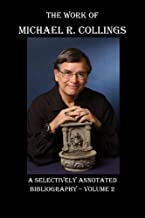 Michael R. Collings, recipient of the 2016 Grand Master Award from the World Horror Convention, is a three-time finalist for the Horror Writers Association annual Bram Stoker Award, twice for poetry and once for non-fiction. He has written over 120 books, including bestselling horror novels, mysteries, science fiction, and poetry. Among his poetry are The Nephiad, a Miltonic epic based on episodes from the Book of Mormon; and Temple and Cosmos, exploring
Michael R. Collings, recipient of the 2016 Grand Master Award from the World Horror Convention, is a three-time finalist for the Horror Writers Association annual Bram Stoker Award, twice for poetry and once for non-fiction. He has written over 120 books, including bestselling horror novels, mysteries, science fiction, and poetry. Among his poetry are The Nephiad, a Miltonic epic based on episodes from the Book of Mormon; and Temple and Cosmos, exploring  spirituality in science fiction and religion. He has written book-length studies of works of contemporary popular authors, including Stephen King and Orson Scott Card. A professor emeritus from Pepperdine University, he is a professional editor and reviewer as well, with multiple contributions at JournalStone.com, Hellnotes.com, in the print journal Dark Discoveries, and at michaelrcollings@blogspot.com.
spirituality in science fiction and religion. He has written book-length studies of works of contemporary popular authors, including Stephen King and Orson Scott Card. A professor emeritus from Pepperdine University, he is a professional editor and reviewer as well, with multiple contributions at JournalStone.com, Hellnotes.com, in the print journal Dark Discoveries, and at michaelrcollings@blogspot.com.

.
Michael deserves every valedictory moment.
I had no idea he and I shared an alma mater—I too started in Bakersfield!
Thank you. B.A. from B.C.C., 1967! Then on to Whittier College for two years.
A correction–an A.A., of course.